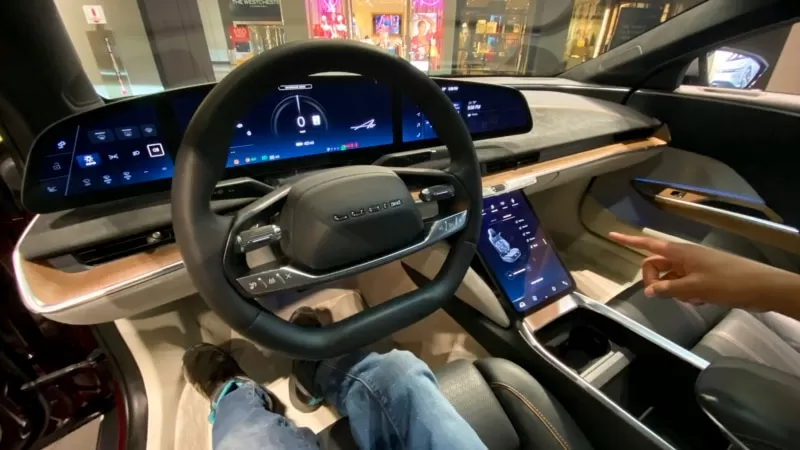New York – The United States is taking proactive measures to protect national security and U.S. drivers by seeking to ban the sale of connected and autonomous vehicles equipped with Chinese and Russian software and hardware. The U.S. Commerce Department announced on Monday that it plans to prohibit the import and sale of these vehicles, citing the potential threats posed by foreign actors and the need to safeguard the privacy of American drivers.
While there is currently minimal Chinese and Russian software used in the U.S., the concern lies in the hardware used in these vehicles. That is why the prohibitions on software will go into effect for the 2027 model year, while hardware prohibitions will take effect for the 2030 model year or January 1, 2029 for units without a specific model year.
According to the Commerce Department, this measure is necessary as the increasingly advanced technology in vehicles, such as microphones, cameras, GPS tracking, and Bluetooth, could make Americans vulnerable to malicious actors and expose personal information, including home addresses and children’s school locations.
In extreme situations, a foreign adversary could even take control of multiple vehicles in the U.S. simultaneously, causing accidents and blocking roads, warned U.S. Secretary of Commerce Gina Raimondo in a press call on Sunday. She emphasized that this is not about trade or economic advantage, but a strictly national security action. “The good news is that we currently do not have many Chinese or Russian cars on our roads,” Raimondo stated.
However, she also noted that Europe and other regions where Chinese vehicles have become popular should serve as a cautionary tale for the U.S. Security concerns have already been raised in Europe, where Chinese electric cars have rapidly gained market share. Janka Oertel, director of the Asia program at the European Council on Foreign Relations, wrote on the council’s website, “Who controls these data flows and software updates is a far from trivial question, the answers to which encroach on matters of national security, cybersecurity, and individual privacy.”
Today, vehicles are not just modes of transportation but have become “mobility platforms” that collect and track data on driver and passenger behavior. A senior administration official revealed that the terms of service contracts for some of these technologies show that data from vehicles ends up in China. This is a major concern for the U.S., which is why the government is taking a proactive approach to address these potential national security threats.
“We are issuing a proposed rule to address these new threats before Chinese or Russian suppliers, automakers, and car components become commonplace in the U.S. automotive sector,” Raimondo explained.
It is challenging to predict when Chinese vehicles could reach a saturation point in the U.S., but the Commerce Department believes that China is actively trying to enter the market. Several Chinese companies have already announced plans to enter the automotive software space. Therefore, the proposed rule would also apply to vehicles made in the U.S. that use Chinese and Russian technology.
In addition, Russia has also been added to the regulations as the country is attempting to revive its auto industry. The proposed rule would prohibit the import and sale of vehicles equipped with Russian and Chinese software and hardware that allow the vehicle to communicate externally through Bluetooth, cellular, satellite, or Wi-Fi modules. It would also ban the sale or import of software components made in Russia or the People’s Republic of China that enable a highly autonomous vehicle to operate without a driver behind the wheel.
The proposed rule would apply to all vehicles but would exclude those not used on public roads, such as agricultural or mining vehicles.
While U.S. automakers support the government’s national security goal, they also point out that there is currently minimal use of connected vehicle hardware or software from China in the U.S. supply chain. John Bozzella, CEO of the Alliance for Automotive Innovation, a large industry group, stated, “You can’t just flip a switch and change the world’s most complex supply chain overnight.”
Bozzella also noted that the lead time provided in the proposed rule may be sufficient for some automakers to make the necessary changes but could be too short for others. The Commerce Department has met with major auto companies around the world and various industry associations to better understand supply chain networks while drafting the proposed rule.
The Commerce Department is now inviting public comments, which will be accepted for 30 days after the rule’s publication before being finalized. This is expected to happen before the end of the Biden administration.
This move follows earlier


